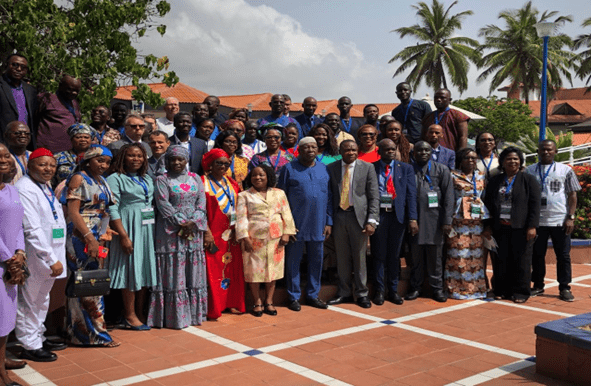Deputy Minister of Health, Mahama Asei Seini, has called on the West African Health Organisation (WAHO) and development partners to focus on developing a regional Risk Communication and Community Engagement (RCCE) workforce to enhance efficient pandemic preparedness and response.
This proactive approach, according to him, will ensure efficient communication, education and community involvement during times of crisis.
“The executive committee, Economic Community of West African States-Risk Communication and Community Engagement (ECOWAS-RCCE) – in collaboration with WAHO and development partners – must focus on developing the regional RCCE workforce for Efficient Pandemic Preparedness and Response,” he said.
The deputy Health minister also stressed the importance of data and research-based interventions in RCCE to strengthen pandemic preparedness and response in West Africa. He emphasised the need to highlight gains made and identify gaps in RCCE and Social and Behaviour Change (SBC) during outbreak responses.
He stressed that investing in evidence-based RCCE interventions will not only improve the region’s responsiveness to pandemics, but also build resilience within communities and empower them to take proactive measures that protect their health.
During public health emergencies, risk communication and community engagement are essential components which complement other technical areas such as surveillance, case management and laboratory services to ensure accurate information is effectively communicated to communities in a manner that is acceptable and practical, he added.
He made these comments during a regional technical workshop on Risk Communication and Community Engagement in Public Health Emergency situations in the ECOWAS region organised by ECOWAS in collaboration with WAHO, with the support of GIZ/RPPP2.
The three-day event’s goal is to assist the West African Health Organisation in enhancing their preparedness and response for risk communication and community engagement during public health emergencies, such as the COVID-19 pandemic. This includes both theoretical knowledge and practical application of risk communication systems.
Chairperson-ECOWAS RCCE Network, Dr. Dacosta Aboagye, emphasised the importance of prioritising and allocating financial resources to the Risk Communication and Community Engagement pillar in public health emergencies.
He stated that he has been advocating for this with Health Ministers in the region to strengthen RCCE efforts.
“During the recent Health Minister’s summit in Guinea Bissau, I had a chance to address the health ministers of ECOWAS countries and urge them to prioritise and allocate financial resources to the Risk Communication and Community Engagement pillar in public health emergencies, in order to strengthen RCCE,” he said.
“The meeting also provided me with a chance to involve WAHO partners in supporting and enhancing RCCE work through technical and financial assistance.”
Head of Programme at GIZ/RPPP2, Damien Bishop, in his remarks also noted that providing the population with accurate and timely information is essential for a successful response to any outbreak.
He noted that the RCCE project has gained valuable insights from past experiences, particularly during the Ebola outbreak, and has further strengthened its approach during the recent COVID-19 pandemic.
He further stressed that: “Collaborating with ECOWAS on risk communication is a significant opportunity for the project to contribute to the region’s efforts in managing public health crises. Working with ECOWAS on risk communication is a testament of the project’s commitment to supporting the region in addressing public health challenges”.










